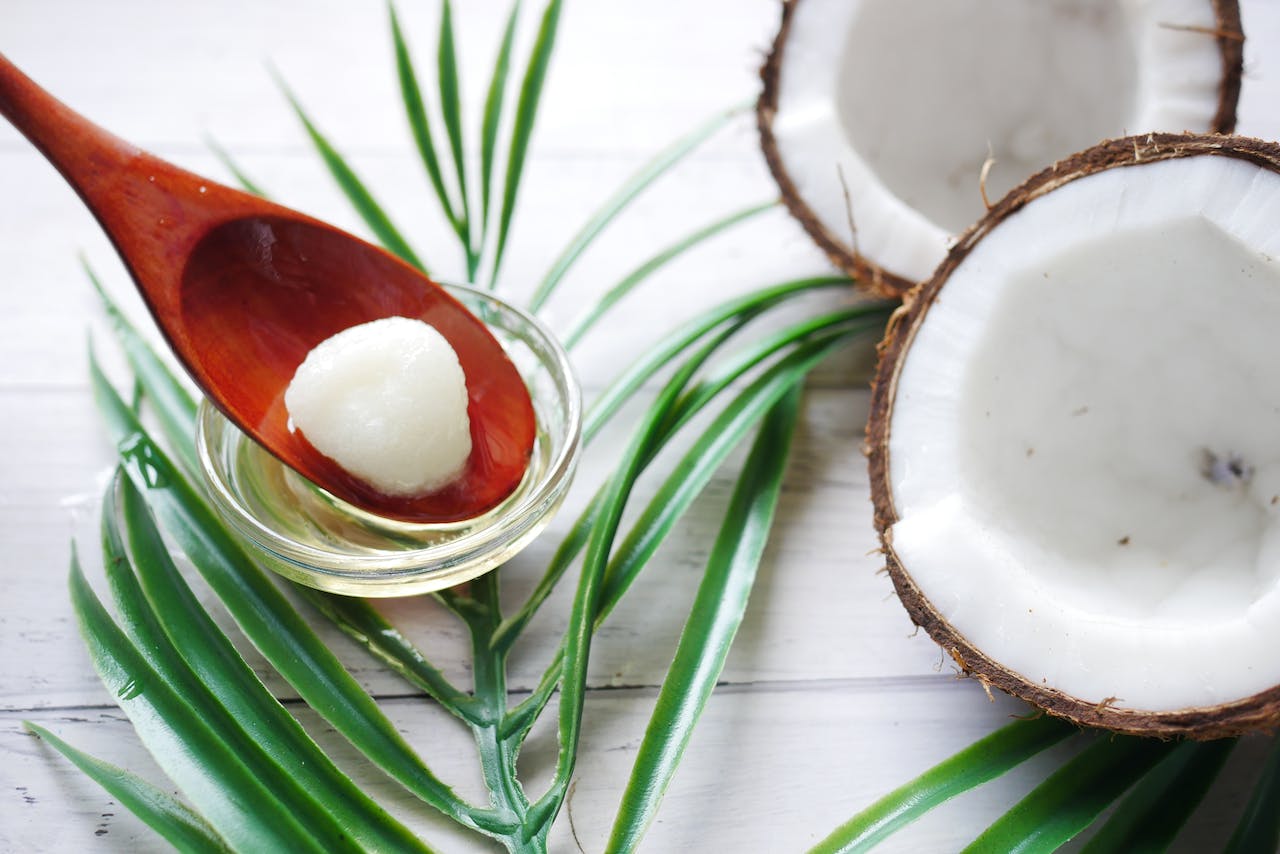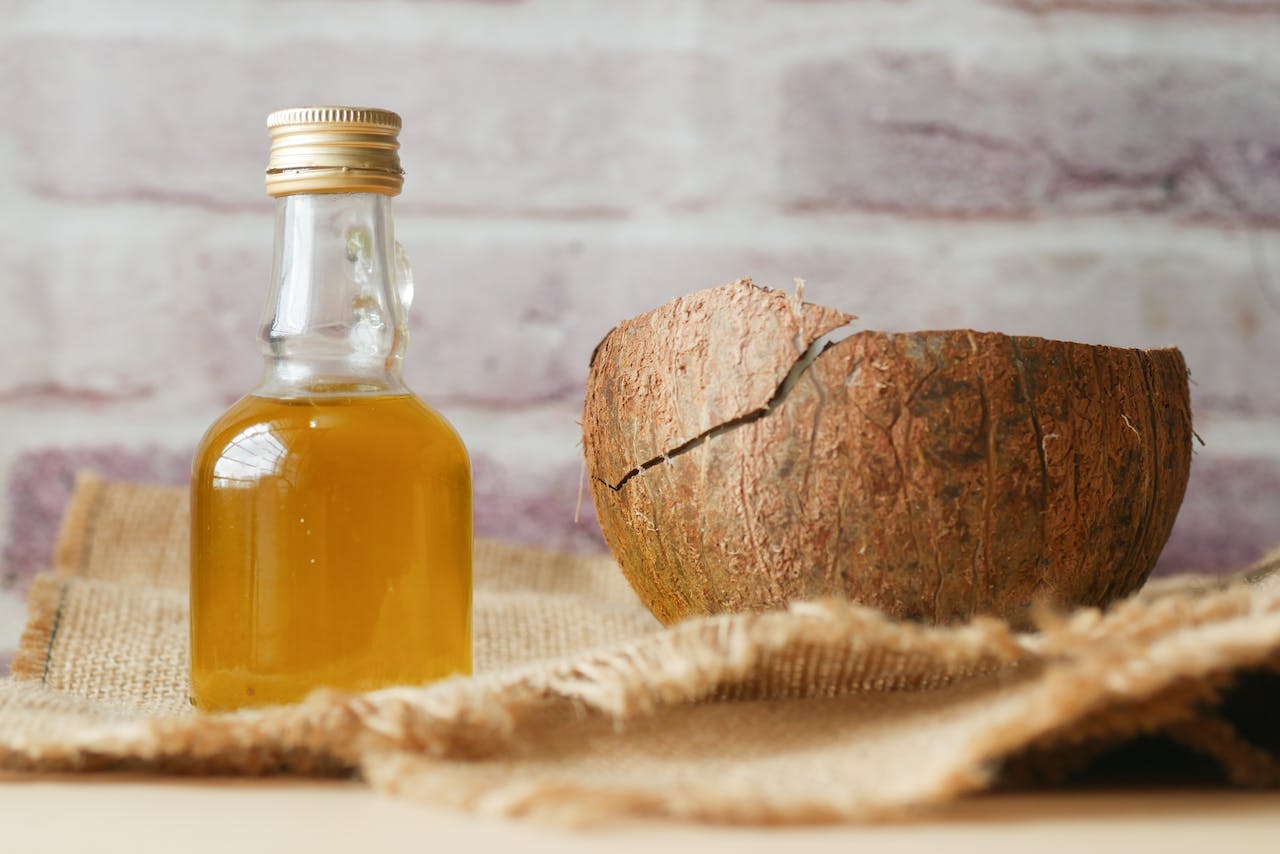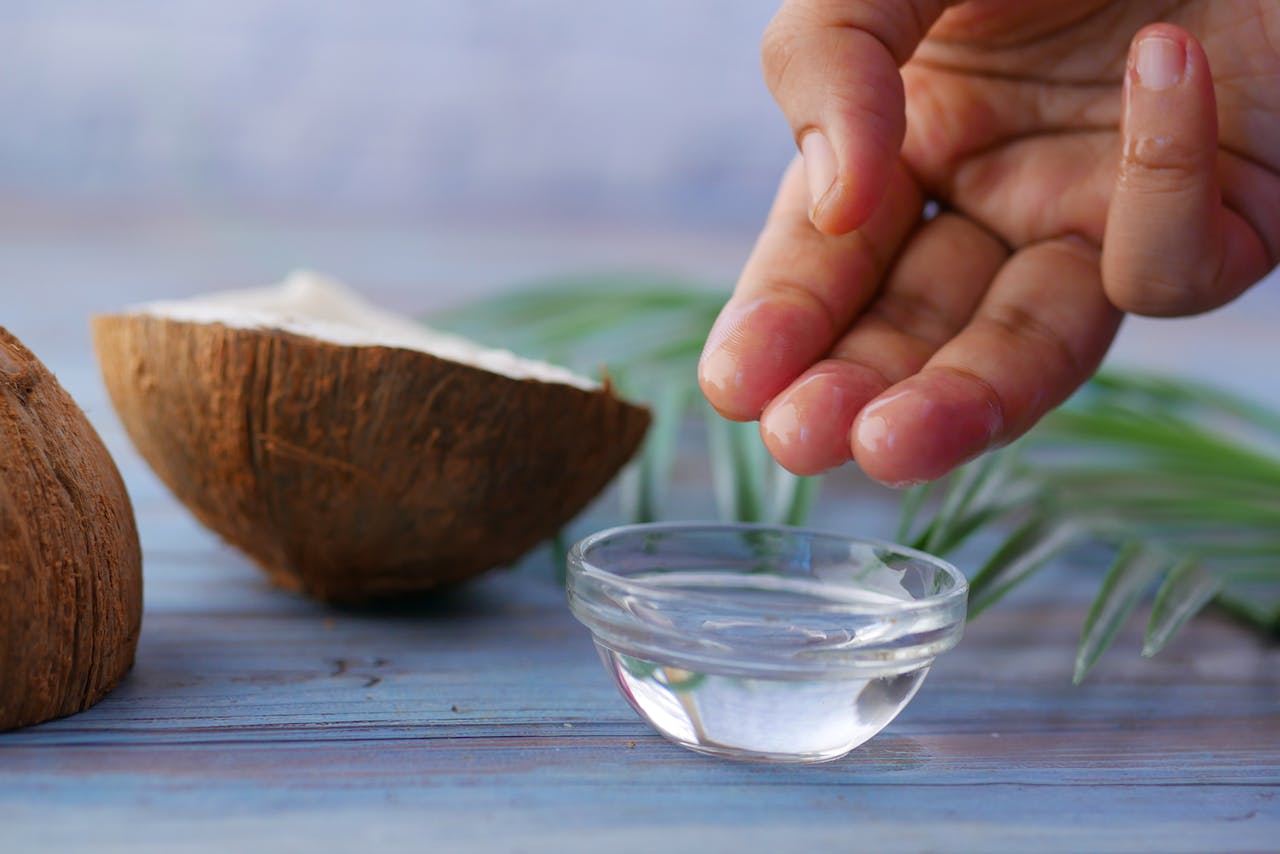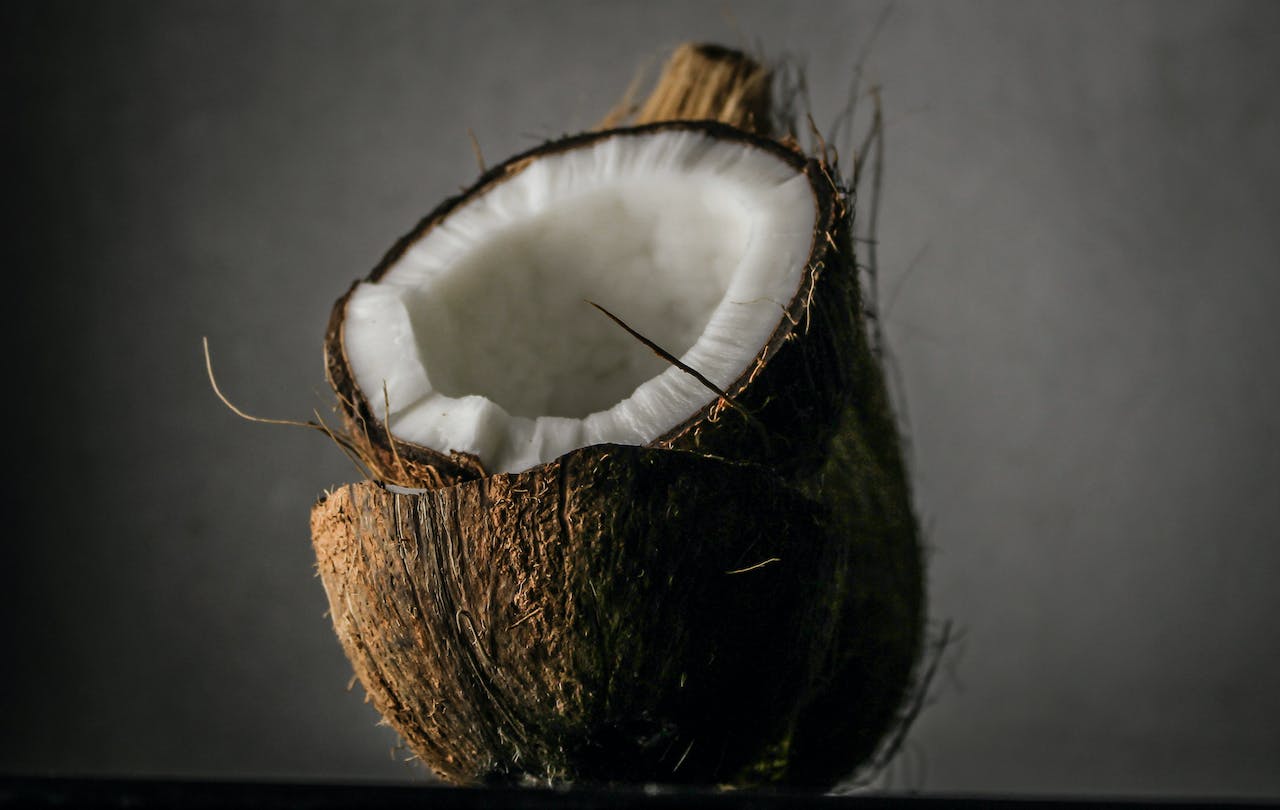Whipped Coconut Oil - Benefits And Uses In Beauty And Skincare
Whipped Coconut Oil, a versatile and nourishing beauty secret, has taken the wellness world by storm. With its creamy texture and natural goodness, Whipped Coconut Oil is not just your ordinary skincare product; it's a game-changer.
Author:Suleman ShahReviewer:Han JuNov 27, 202384.9K Shares1.2M Views
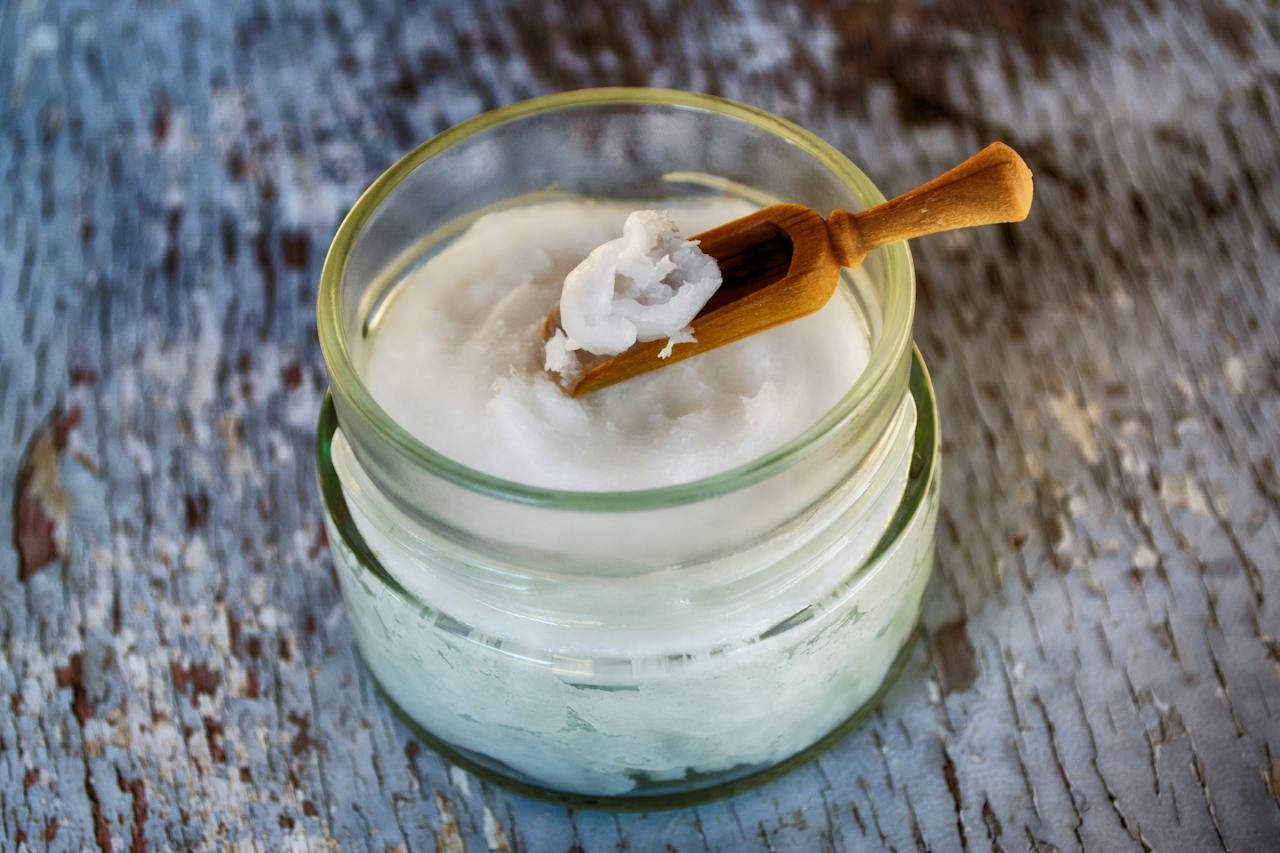
Whipped coconut oil, often hailed as a wonder product, is a versatile and all-natural elixir derived from the fruit of the coconut palm. This miraculous substance has gained popularity for its numerous benefits in beauty, health, and wellness.
This article will delve into the many uses and advantages of whipped coconut oil, from its exceptional skincare properties to its culinary applications and even its contribution to overall well-being. As you explore the various facets of this remarkable product, you will come to appreciate the diverse ways whipped coconut oil can enhance your life.
What Is Whipped Coconut Oil?
Whipped coconut oil, a unique and versatile product derived from the tropical coconut palm, has gained widespread attention for its incredible properties in beauty, health, and wellness.
You soften your skin using coconut oil. Coconut oil has terrific cosmetic benefits. It's helpful in treating eczema, psoriasis, and other skin disorders. Additionally, it soothes dry, flaky skin. When used topically, it reduces the appearance of fine lines, elasticity loss, and age spots.
As a moisturizer, whipped coconut oil is fantastic. It doesn't become challenging when it gets cold, and it's simple to apply. If you want to give it a pleasant aroma, you may use essential oils.
The Whipping Process
Whipped coconut oil undergoes a specific preparation process that sets it apart from regular coconut oil. The primary distinction lies in the texture and consistency. While traditional coconut oil remains in a solid or semi-solid state at room temperature, whipped coconut oil is whipped into a creamy, spreadable texture. This transformation is achieved by whipping the coconut oil at a controlled temperature, incorporating air into the oil, and giving it a lighter, fluffier feel.
The Nutritional Composition
Natural coconut oil is known for its nutritional value. Medium-chain triglycerides (MCTs), which are quickly absorbed and energy-boosting, make up most of it. Whipped coconut oil preserves MCTs, providing fast, sustained energy. Additionally, it is high in lauric acid, a powerful antibacterial fatty acid that helps health.
Benefits Of Whipped Coconut Oil Lotion
Coconut oil and milk are well-known for their many purposes, from cooking to skincare, and there is no shortage of coconut oil recipes online for a wide range of do-it-yourself, all-natural remedies.
Since coconut oil has been shown to have such positive effects, you have started using it in several of our high-end goods. One such product is our Coconut Hydrating Milk. Discover the top ten reasons why coconut oil belongs in your beauty regimen right now.
Due to their distinct chemical composition, many tried-and-true substances, including coconut oil, have more than one effect. One of the numerous uses for coconut oil is in:
Nourishing Skin And Hair
Whipped coconut oil is a fantastic natural remedy for nourishing your skin and hair. Its moisturizing properties can help combat dryness and promote hydration. When applied to the skin, it can soothe and soften rough or dry patches, leaving your skin feeling smoother and more supple. For your hair, whipped coconut oil can be used as a deep conditioner, helping to repair damage and restore luster. It can also help manage frizz and enhance the overall health and appearance of your locks.
Anti-Aging Properties
The antioxidants present in whipped coconut oil can help slow down the aging process and reduce the appearance of fine lines and wrinkles. Protecting your skin from free radicals contributes to a more youthful and radiant complexion. Incorporating whipped coconut oil into your skincare routine can help you maintain your skin's elasticity and combat the signs of premature aging.
Natural Sunscreen
Coconut oil, including its whipped form, has a natural sun protection factor (SPF). While it's not a replacement for commercial sunscreens, it can provide some protection against harmful UV rays. Applying whipped coconut oil before heading out into the sun can be a great way to keep your skin safe from the sun's damaging effects.
Anti-Inflammatory Benefits
Whipped coconut oil contains compounds that possess anti-inflammatory properties. This makes it beneficial for individuals with skin conditions like eczema, psoriasis, or dermatitis. By reducing inflammationand soothing irritated skin, it can provide relief and promote healing.
Weight Management
The medium-chain triglycerides (MCTs) in whipped coconut oil have been linked to weight management and improved metabolism. Incorporating this oil into your diet, in moderation, may help support your weight loss goals and promote a healthier metabolic rate. The quick energy provided by MCTs can also boost your workout performance and overall energy levels.
Immune System Boost
Lauric acid, a prominent component of whipped coconut oil, has powerful antimicrobial properties. Consuming whipped coconut oil can help enhance your immune system's ability to combat infections and pathogens. It may act as a natural shield against various illnesses and diseases.
Digestive Health
Whipped coconut oil is also known to support digestive health. The MCTs it contains are easily digestible and can help with nutrient absorption in the gut. Additionally, coconut oil has been used to alleviate symptoms of conditions such as irritable bowel syndrome (IBS) and other digestive disorders.
Oral Health
Oil pulling, a traditional Ayurvedic practice, involves swishing oil in your mouth to improve oral hygiene. Whipped coconut oil is a popular choice for oil pulling due to its pleasant taste and potential oral health benefits. It can help reduce harmful bacteria in the mouth, promote fresher breath, and support overall oral health.
Does Whipped Coconut Oil Harden
Whipped coconut oil typically remains relatively soft and creamy at room temperature due to the whipping process. However, its consistency can vary depending on factors such as the ambient temperature and the type of coconut oil used.
Coconut oil has a melting point of around 76 degrees Fahrenheit (24 degrees Celsius). So, if your room temperature is cooler than this, the whipped coconut oil may be firmer and have a more solid consistency. In warmer temperatures, it will become softer and may even melt.
If you find that your whipped coconut oil has become too firm, you can easily soften it by warming it up in your hands or applying it to your skin. To make it more spreadable, you can also re-whip it briefly with a hand mixer or stand mixer.
To maintain the desired consistency, it's a good idea to store your whipped coconut oil body butter or moisturizer in a cool, dry place. If you live in a hot climate, you might want to store it in the refrigerator to keep it from melting.
Remember that the texture of whipped coconut oil is more pliable and softer than solid coconut oil, making it easier to apply to your skin.
How To Make Whipped Coconut Oil
Creating your whipped coconut oil at home is a straightforward process that allows you to customize its texture and properties according to your preferences.
What You Will Need
Before you begin, gather the following ingredients and tools.
- Coconut oil, one cup.
- 2 teaspoon of jojoba oil.
- 1 tsp of vitamin E oil.
- Ten to fifteen drops of essential oil.
Steps To Make Whipped Coconut Oil
Follow these simple steps to make your whipped coconut oil.
Preparation
Start by measuring the desired amount of solid coconut oil in your mixing bowl. You can begin with a small quantity to experiment with or make a larger batch for regular use.
Softening The Coconut Oil
To make the coconut oil more accessible to whip, allow it to soften slightly. You can achieve this by placing the mixing bowl in a warm area or briefly microwaving it at a low setting. Be cautious not to melt the oil completely, as you want it to be in a semi-solid state for the whipping process.
Whipping
Using your electric mixer or hand-held beater, whip the softened coconut oil at a low to medium speed. Start at the lower speed setting and gradually increase it as the oil begins to take on a creamy texture.
Continue Whipping
Continue whipping the coconut oil for several minutes until it becomes light, airy, and creamy. The transformation will be noticeable, with the oil changing from a solid state to a soft, spreadable consistency.
Customize Your Whipped Coconut Oil
At this stage, you can add optional ingredients to customize your whipped coconut oil. For a pleasant aroma, consider incorporating essential oils like lavender or vanilla. You can also infuse your whipped coconut oil with herbs or spices for added benefits.
Storage
Once your whipped coconut oil reaches the desired consistency and incorporates any optional ingredients, transfer it to a clean, sealable glass jar or container. Ensure that it is tightly sealed to prevent contamination and maintain the freshness of the product.
Cooling
Allow the whipped coconut oil to cool at room temperature. As it cools, it will solidify slightly but remain soft and easy to scoop. Once it reaches the desired texture, you can start using it in your beauty and wellness routines or as a culinary ingredient.
Whipped Coconut Oil Uses In Beauty And Skincare
Coconut oil's lauded reputation as a skin savior is well-earned. It contains high concentrations of acids with antimicrobial, antiviral, antibacterial, and antifungal properties.
Defending Skin From Damaging Microorganisms
Coconut oil's fatty acids, particularly lauric and capric acid, are great for maintaining healthy skin since they destroy dangerous germs that might develop on our skin. Coconut oil's lauric and capric acid are effective against the fungus and bacteria that cause common skin illnesses, including acne, folliculitis, and cellulitis.
Coconut Oil For Dry Skin Is Highly Moisturising
Coconut oil has been discovered to be a very efficient moisturizer for dry and cracked skin. Coconut oil is excellent for dry skin since it helps to hydrate the skin and strengthen its natural defense barrier, making it better able to retain moisture.
Coconut Oil Can Help To Treat Acne
Acne is an inflammatory disorder, and coconut oil's ability to reduce inflammation makes it a helpful treatment option. The lauric and capric acids included in coconut oil have also been demonstrated to be effective against the germs that cause acne.
Coconut Oil Can Support Healing
Coconut oil has been shown in scientific studies to increase antioxidants and collagen in the body, which aid in the skin's natural capacity to regenerate and heal itself.
Coconut Oil Can Help To Reduce Inflammation
Coconut oil's antioxidant properties make it a useful adjunct in the treatment of skin irritation. Free radicals (unstable atoms that adhere to our skin) may cause inflammation, but antioxidants can neutralize them.
Coconut Oil Contributes To A More Even Skin Tone
Coconut oil has been used for centuries as a natural remedy for a variety of skin issues.
Coconut Oil Can Help To Reduce Signs Of Ageing Skin
Since coconut oil boosts the body's natural collagen synthesis, it also aids in increasing skin suppleness and resulting in tighter skin. Reduced fine lines and wrinkles are another benefit of increased skin suppleness.
Coconut Oil Can Help To Soften Skin
Coconut oil's fatty acids, especially capric acid, work wonders as emollients for the skin.
Culinary Uses Of Whipped Coconut Oil
Whipped coconut oil, known for its versatility and health benefits, is not only a superstar in skincare but also a culinary delight.
A Cooking Oil Alternative
Whipped coconut oil serves as an excellent alternative to traditional cooking oils. Its high smoke point makes it ideal for sautéing, stir-frying, and deep-frying. The advantage here is that it imparts a delicate, tropical flavor to your dishes, enhancing their overall taste.
Baking With Whipped Coconut Oil
Bakers, in particular, have found whipped coconut oil to be a valuable ingredient. It can replace butter or other oils in a variety of recipes. Due to its creamy texture and subtle coconut flavor, it can add a delightful twist to cookies, cakes, muffins, and more. Plus, it's an excellent option for those looking to reduce saturated fats in their baked goods.
A Creamy Texture In Vegan And Dairy-Free Recipes
For individuals following a vegan or dairy-free diet, whipped coconut oil is a game-changer. It can be used to create creamy, plant-based alternatives to traditional dairy products. Whether you're making dairy-free ice cream, coconut whipped cream, or dairy-free cream cheese, whipped coconut oil's rich texture and natural sweetness make it a valuable addition to your culinary creations.
Flavorful Dressings And Sauces
Whipped coconut oil can be incorporated into salad dressings and sauces to add a unique twist to your dishes. Its slight coconut undertones can complement a wide range of flavors, creating a delightful fusion of tastes that will leave your taste buds wanting more.
Enhancing Smoothies And Beverages
If you're a fan of smoothies, consider adding a spoonful of whipped coconut oil to your morning blend. It not only boosts the creamy texture of your smoothie but also provides a subtle, tropical flavor that pairs well with various fruit combinations. Additionally, you can experiment with incorporating whipped coconut oil into coffeeor tea for a creamy and dairy-free alternative to traditional creamers.
Delectable Desserts
When it comes to desserts, whipped coconut oil can be a game-changer. It's a versatile ingredient that can be used to create dairy-free frostings, truffles, and even dairy-free fudge. Its ability to solidify at cooler temperatures means that it can be used to create a variety of delectable treats.
Whipped Coconut Oil Health Benefits
Whipped coconut oil is celebrated not only for its culinary and skincare applications but also for its remarkable health benefits.
People sing its praises for helping them lose weight, feel healthier overall, and benefit from its antibacterial and antioxidant characteristics. If you're considering adding coconut oil to your diet, we've outlined 10 of its proven health advantages and some important caveats.
Cognitive Function And Mental Clarity
The MCTs in whipped coconut oil also have a positive impact on cognitive function. They provide an alternative energy source for the brain, which can lead to improved focus, mental clarity, and enhanced cognitive performance. For those seeking better concentration or support for cognitive health, incorporating whipped coconut oil into their diet may be beneficial.
Improved Digestive Health
Whipped coconut oil can contribute to improved digestive health. The MCTs it contains are easily digested and absorbed in the gut, which can aid in nutrient absorption. This makes it an excellent choice for individuals with digestive issues, such as irritable bowel syndrome (IBS) or malabsorption problems.
Immune System Support
One of the standout health benefits of whipped coconut oil is its potential to boost the immune system. This is attributed to its high content of lauric acid, a fatty acid with antimicrobial properties. Lauric acid can help the body combat infections and harmful microorganisms, supporting overall immune health.
Antioxidant Protection
Whipped coconut oil is packed with antioxidants, which can help protect the body from the harmful effects of free radicals. These unstable molecules can cause cellular damage and contribute to various chronic diseasesand the aging process. The antioxidants in whipped coconut oil can assist in neutralizing free radicals, potentially reducing the risk of oxidative stress-related health issues.
Cardiovascular Health
MCTs in whipped coconut oil, in contrast to the widespread belief that all saturated fats are bad for the heart, have been demonstrated to have no impact on cardiovascular healthor even a positive one. In contrast to long-chain saturated fats, they do not increase levels of LDL (low-density lipoprotein).
Furthermore, whipped coconut oil has been connected with an increase in HDL (high-density lipoprotein) cholesterol, which is considered "good" cholesterol, promoting heart health.
Anti-Inflammatory Properties
Chronic inflammation is at the root of many diseases, including cardiovascular disease, diabetes, and autoimmune conditions. Whipped coconut oil contains compounds with anti-inflammatory properties that can help reduce inflammation in the body. Incorporating it into your diet or using it topically may help mitigate the risk of inflammation-related health problems.
Skin Health And Beauty
As discussed in previous sections, the health benefits of whipped coconut oil for the skin must be considered. Its moisturizing properties help maintain skin hydration and elasticity, while its antimicrobial qualities can assist in managing skin conditions like acne and eczema. This, in turn, supports not only the health but also the beauty of your skin.
Safety And Allergies Of Whipped Coconut Oil
It is rare for coconut oil to cause anaphylaxis. People who are sensitive to coconut oil may have contact dermatitis with symptoms such as a rash or blisters on the skin. Cases of contact dermatitis are prevalent in people using cosmetic products containing coconut oil.
Whipped Coconut Oil Recipe
Whipped coconut oil is a versatile and luxurious DIY skincare product that you can make at home with just a few simple ingredients. It can be used as a moisturizer, body butter, or hair conditioner. Here's a basic recipe for whipped coconut oil:
Ingredients
1 cup of solid coconut oil (organic, unrefined, and cold-pressed is preferable) A few drops of essential oil (optional, for fragrance)
Instructions
- Ensure that your coconut oil is solid. If it's too soft, you can refrigerate it for a short time to firm it up.
- Scoop the solid coconut oil into a mixing bowl. You can use a hand mixer or a stand mixer with a whisk attachment for this step.
- Whip the coconut oil on high speed for 3-5 minutes, or until it becomes light and fluffy, similar to the texture of whipped cream. Scrape down the sides of the bowl as needed to ensure even whipping.
- If you'd like to add fragrance to your whipped coconut oil, add a few drops of your favorite essential oil (such as lavender, peppermint, or vanilla). Essential oils are potent, so start with just a few drops and add more if desired. Mix the essential oil into the whipped coconut oil until it's well incorporated.
- Transfer the whipped coconut oil into an airtight container. A glass jar with a lid works well for this purpose. Make sure to store it in a cool, dry place.
- Your whipped coconut oil is now ready to use! Apply it to your skin as a moisturizer, use it as a hair conditioner, or even as a shaving cream.
Keep in mind that whipped coconut oil has a lower melting point than regular coconut oil, so it may become softer or even melt in warm temperatures. If this happens, you can simply place it in the refrigerator to firm it up again.
Feel free to experiment with different essential oil combinations or other natural additives like vitamin E oil for added benefits. Enjoy your homemade whipped coconut oil!
Whipped Coconut Oil Body Butter
Whipped coconut oil body butter is a rich and moisturizing skincare product that's perfect for keeping your skin soft and hydrated. Here's a simple recipe to make your own whipped coconut oil body butter:
Ingredients:
- 1 cup of solid coconut oil (organic, unrefined, and cold-pressed is preferable)
- 1/2 cup of shea butter
- 1/2 cup of cocoa butter
- A few drops of essential oil (optional for fragrance)
Instructions:
- Start by measuring out the coconut oil, shea butter, and cocoa butter. You can use a kitchen scale for accuracy.
- In a double boiler or a microwave-safe bowl, melt the coconut oil, shea butter, and cocoa butter together. If you're using a microwave, heat in short 20-30 second bursts, stirring in between until everything is fully melted. If using a double boiler, ensure that the water in the bottom pot is simmering but not boiling to avoid overheating the mixture.
- Once the mixture is completely melted, remove it from the heat source and let it cool for about 30 minutes at room temperature. You want it to start solidifying around the edges but still be partially liquid in the middle.
- Add a few drops of your favorite essential oil for fragrance, if desired. Essential oils like lavender, eucalyptus, or citrus oils work well. Stir to incorporate the fragrance evenly into the mixture.
- Place the mixture in the refrigerator for about 15-20 minutes or until it starts to harden around the edges but is still soft in the center. You want it to be semi-solid but not completely hard.
- Using a hand mixer or a stand mixer with a whisk attachment, whip the partially solidified mixture on high speed for 3-5 minutes, or until it becomes light and fluffy, similar to the texture of whipped cream. Scrape down the sides of the bowl as needed to ensure even whipping.
- Transfer the whipped coconut oil body butter into clean, airtight containers. Glass jars with lids work well for storing body butter.
- Store your body butter in a cool, dry place. It will solidify at room temperature but soften upon contact with your skin.
Apply the whipped coconut oil body butter generously to your skin whenever you need extra moisture. It's especially beneficial for dry or rough areas like elbows, knees, and feet. Enjoy the luxurious, hydrating benefits of your homemade body butter!
Whipped Coconut Oil - FAQs
Can Whipped Coconut Oil Be Used As A Hair Mask?
Yes, whipped coconut oil is a fantastic natural hair mask that can nourish and condition your locks.
What Is The Difference Between Whipped Coconut Oil And Regular Coconut Oil?
Whipped coconut oil is coconut oil that has been whipped to create a creamy texture, making it easier to apply and incorporate into various applications.
Is Whipped Coconut Oil A Good Option For Vegan Baking?
Yes, whipped coconut oil can be an excellent vegan alternative to traditional dairy and butter in baking recipes.
Can Whipped Coconut Oil Be Used As A Natural Makeup Remover?
Absolutely, whipped coconut oil is a gentle and effective makeup remover, particularly for waterproof cosmetics.
How Can Whipped Coconut Oil Be Incorporated Into A Weight-loss Diet?
Whipped coconut oil, with its MCTs, can be used in smoothies, as a cooking oil, or as a dietary supplement to support weight management and increased energy levels.
Conclusion
Whipped coconut oil is a versatile and natural elixir with a wide range of applications and benefits. Whether it's enhancing your skincare routine, elevating your culinary creations, or contributing to your overall health and well-being, whipped coconut oil stands as a testament to the wonders of this unique product.
Its rich nutritional profile, creamy texture, and numerous health advantages make it a valuable addition to your daily regimen. By embracing the remarkable properties of whipped coconut oil, you can unlock its potential and experience the many ways it can enhance your life.
Jump to
What Is Whipped Coconut Oil?
Benefits Of Whipped Coconut Oil Lotion
Does Whipped Coconut Oil Harden
How To Make Whipped Coconut Oil
Whipped Coconut Oil Uses In Beauty And Skincare
Culinary Uses Of Whipped Coconut Oil
Whipped Coconut Oil Health Benefits
Safety And Allergies Of Whipped Coconut Oil
Whipped Coconut Oil Recipe
Whipped Coconut Oil Body Butter
Whipped Coconut Oil - FAQs
Conclusion

Suleman Shah
Author
Suleman Shah is a researcher and freelance writer. As a researcher, he has worked with MNS University of Agriculture, Multan (Pakistan) and Texas A & M University (USA). He regularly writes science articles and blogs for science news website immersse.com and open access publishers OA Publishing London and Scientific Times. He loves to keep himself updated on scientific developments and convert these developments into everyday language to update the readers about the developments in the scientific era. His primary research focus is Plant sciences, and he contributed to this field by publishing his research in scientific journals and presenting his work at many Conferences.
Shah graduated from the University of Agriculture Faisalabad (Pakistan) and started his professional carrier with Jaffer Agro Services and later with the Agriculture Department of the Government of Pakistan. His research interest compelled and attracted him to proceed with his carrier in Plant sciences research. So, he started his Ph.D. in Soil Science at MNS University of Agriculture Multan (Pakistan). Later, he started working as a visiting scholar with Texas A&M University (USA).
Shah’s experience with big Open Excess publishers like Springers, Frontiers, MDPI, etc., testified to his belief in Open Access as a barrier-removing mechanism between researchers and the readers of their research. Shah believes that Open Access is revolutionizing the publication process and benefitting research in all fields.

Han Ju
Reviewer
Hello! I'm Han Ju, the heart behind World Wide Journals. My life is a unique tapestry woven from the threads of news, spirituality, and science, enriched by melodies from my guitar. Raised amidst tales of the ancient and the arcane, I developed a keen eye for the stories that truly matter. Through my work, I seek to bridge the seen with the unseen, marrying the rigor of science with the depth of spirituality.
Each article at World Wide Journals is a piece of this ongoing quest, blending analysis with personal reflection. Whether exploring quantum frontiers or strumming chords under the stars, my aim is to inspire and provoke thought, inviting you into a world where every discovery is a note in the grand symphony of existence.
Welcome aboard this journey of insight and exploration, where curiosity leads and music guides.
Latest Articles
Popular Articles
